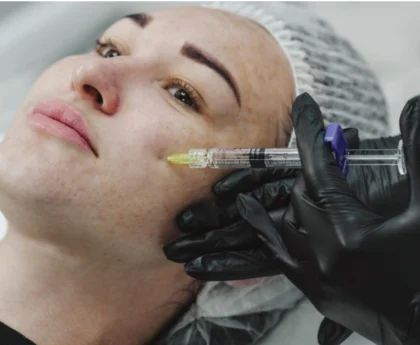Obtaining a medical marijuana card enables individuals to access medicinal cannabis with their doctor’s recommendation. This card can be issued by state governments and is only available to those with qualifying medical conditions as determined by their doctor. Once their condition is deemed eligible, patients must first schedule an appointment with a medical professional who is certified to approve medical cannabis use. After receiving the doctor’s written verification, individuals must submit an application with the correct documentation and fees to obtain their medical marijuana card. With the card, individuals can then legally purchase medical marijuana from approved dispensaries or facilities.
Cost For A Medical Card
The cost of a Virginia medical marijuana card varies from state to state. As of 2019, the average cost for a medical marijuana card ranges from $50 to $100. This is for the initial visit to the medical doctor and may also include a fee for the state registration process. Additional costs may include renewal fees, lab testing, and sample product purchases. There may also be additional costs for online evaluations from a specialized physician, depending on the state’s laws and patient requirements. Each state has its own patient programs, so make sure to check the specifics with the State Department to ensure that you are getting the right fee and card applicable to your state.

Alternatives For Obtaining Medical Marijuana
Medical marijuana is a viable option to treat a variety of ailments and medical conditions. While there are some states that offer access to medical marijuana through the government, other states require a doctor’s recommendation in the form of a medical marijuana card. There are services online that allow patients to connect with licensed medical professionals that can provide a medical marijuana recommendation if the patient meets the medical requirements. Additionally, some states offer a caregiver system that can provide access as well. With a caregiver, a patient is able to purchase medical marijuana without a medical marijuana card. It is important to research all relevant laws and regulations for your state to ensure that you are compliant.
Restrictions On Purchasing Medical Marijuana
Medical marijuana cards are always subject to certain restrictions due to their legal status. Generally, only a licensed physician can prescribe a medical marijuana card and only patients with a medical marijuana card will be able to purchase it from a dispensary. Furthermore, the amount of medical marijuana that can be purchased is limited to the amount prescribed by the doctor and the total purchases from a dispensary are also limited in one month period. In order to obtain the medical marijuana card, the patient is subject to certain medical tests and follow certain safety protocols. Certain states maintain a database with the details of all the medical marijuana card holders to ensure that the cards are not misused. These restrictions amount to providing a safe and regulated platform for the purchasers to access medical marijuana.
Finding A Cannabis Dispensary
Finding a cannabis dispensary can seem intimidating if you don’t know what to look for. It’s important to research the dispensary to make sure you’re comfortable with their standards. Determine if they require a medical marijuana card, if they offer delivery, and if their products are laboratory tested for quality and potency. Look up reviews online and visit the dispensary in person to get a better feel for the place and the staff. Consider if the dispensary offers member loyalty programs, educational resources, or product descriptions that explain the type of effects you can expect. Most dispensaries will be up front and honest if you have any questions, so don’t hesitate to ask.
Dosage And Use Of Medical Marijuana
For those with a medical marijuana card, it is important to know the appropriate dosage and use of medical marijuana. Depending on the condition being treated, the strength of the marijuana and the dosage should be discussed with the doctor. For first-time users, it is advised to start with a small dosage and increase it gradually to reach the desired effect. The marijuana should be taken by mouth or inhaled. In addition, medical marijuana can come in the form of edibles, ointments, oils, sprays, and tinctures. Additionally, it is recommended to store medical marijuana in an air-tight container and out of reach of children. It is important to follow the doctor’s instructions for the safe and effective use of medical marijuana to minimize the risk of experiencing unwanted side effects.
Renewal Of Your Medical Card
Renewing your medical marijuana card is important to ensure that you have continued access to the benefits of cannabis. Applying for a renewal is easy. All you need to do is call your local MMJ doctor, explain that you need a renewal, and make an appointment for a consultation. They will ask you to have on hand any necessary information and documents, including proof of residency, your old card, and your physician’s recommendation. The doctor will evaluate your medical condition and write your card after your appointment. Once your card is issued, you can begin making orders at dispensaries and continuing to use cannabis for medical purposes.
Conclusion
The availability of medical marijuana continues to increase as more states legalize it for medicinal use. Obtaining a medical marijuana card enables you to access medical-grade cannabis products from approved dispensaries. Nonetheless, it is important to research the process and requirements for obtaining a medical marijuana card in your particular state to ensure it is done correctly. In some states, you may have to jump through a few hoops like visiting a licensed doctor and paying the appropriate fees. On the other hand, once the card is processed and issued, you can purchase quality products from legally authorized vendors in your state.

Sharon Bartlett is a Registered Dietitian Nutritionist based in Florida. She is passionate about educating others about the importance of making nutritious food choices and promoting healthy eating behaviors. With a background in clinical, community, and Wellness nutrition, she is adept at addressing the diverse needs of individuals and families. Her expertise in food and nutrition makes her the go-to person to bridge the gap between general wellness and specific dietary concerns. She loves to share her enthusiasm for whole-food nutrition with her blog readers and provide practical tips for everyday living.





